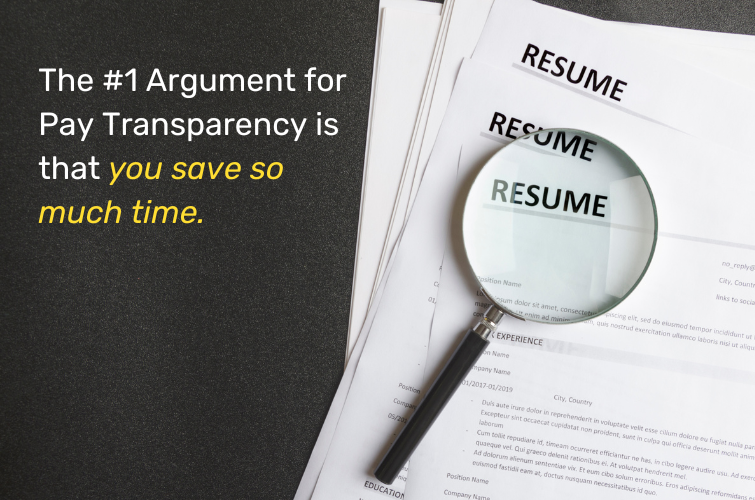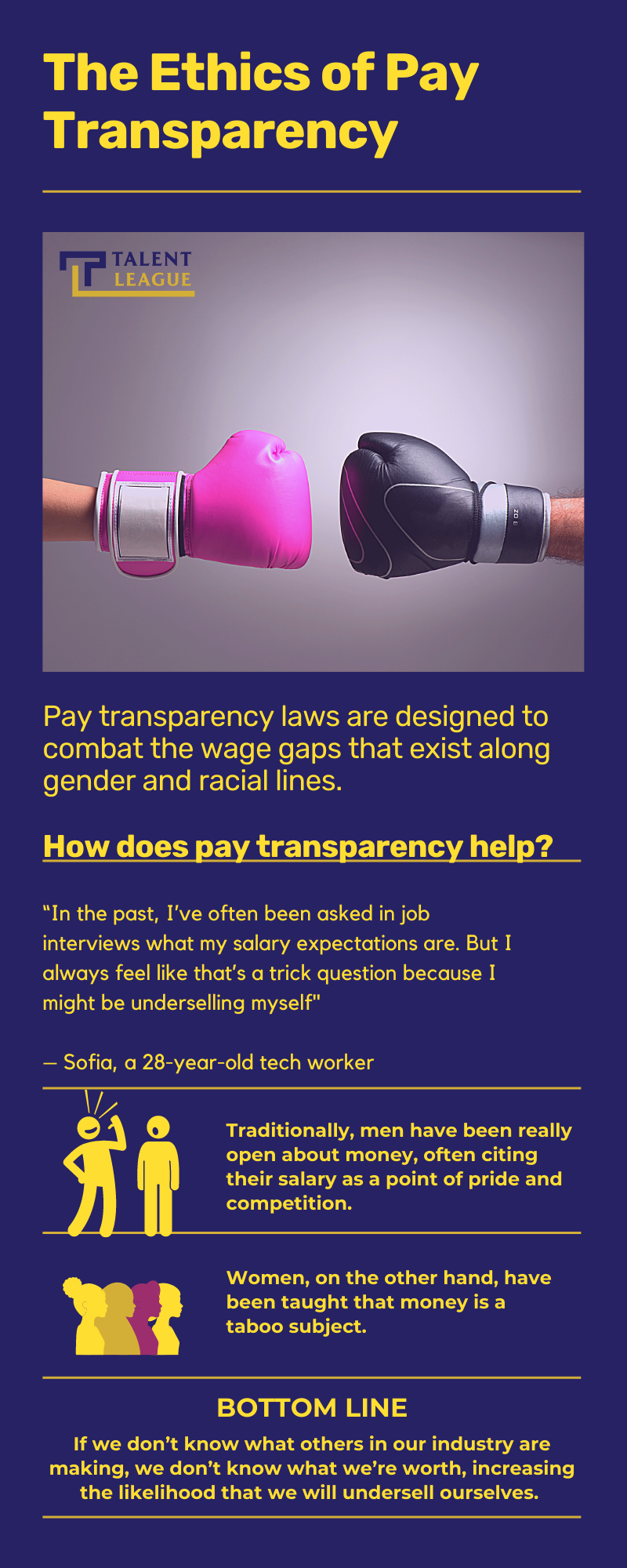On May 11, 2023, the new Pay Transparency Law was passed in BC. There are several new requirements for BC employers that result from this law including the requirement to disclose the expected pay range for a specific job opportunity when advertised publicly.
While I can see some downsides for the company in having to do this and I am generally not a fan of requiring companies to publicly disclose what they pay their staff, I believe strongly in pay transparency with candidates.
The Ultimate Time Waster
The #1 argument for pay transparency during the recruitment process is that you save so much time.
I’ve seen companies post ridiculous pay ranges that they never intend to honour just to increase the size of their candidate pool.
I’m all for large candidate pools, but they need to be qualified. It is a complete waste of everyone’s time to push a candidate through the interview process when you can’t afford them.
This is especially true for sales roles.
Sure, a strong culture, good company, flexibility, benefits, and perks are all important, but money is a major player in negotiations with salespeople.
If you aren’t in the range, they won’t take the job. You need to know this early on in the process to avoid wasting time and focus your efforts on the right candidates.

Falling for a Candidate You Can’t Afford
If you don’t talk comp early on, you take the risk of falling for a candidate you can’t afford. When you go this route, one of two things can happen:
- You waste a ton of time and have to start over
- You overspend and get buyer’s remorse
Neither is good for business (or the candidate).
Hiring can be an emotional process. It reminds me of buying a house…
You follow the realtor into the beautiful home that you can already tell is going to be perfect for you.
It has every feature on your wish list.

You can imagine raising your family here.
You instantly fall in love.
Then the realtor tells you the price.
Damn, can we pull it off?
This same emotional pull happens during the hiring process. You go through rounds of interviews, getting more invested and more excited as the process goes on.
The candidate is excited too, you’ve really hit it off, but he’s nervous to ask about compensation. He has loved everything he has seen and heard so far about the role, the company, and the team, but he’s been told time and again not to bring up compensation during interviews.
Finally, you make the offer and your heart drops when you see his face and he says “I can’t come over for less than X.”
That is not in the budget.
Do you fall victim to the sunk cost fallacy and overpay, or do you cut your losses and start over?
And don’t forget, while you were interviewing your preferred candidate, you likely passed over other qualified candidates because they weren’t as good. And they probably weren’t! But they were the candidates in your price range.
Avoid this situation entirely by talking compensation before the first interview.

Pay Transparency Best Practices
Tip #1
Know the market value of the compensation when setting the pay range for the position you want to fill. Understanding what others in the industry are making will help you during the negotiation process.
If you’re not sure, reach out! We can walk you through the general comp ranges for the position you want to fill.
Tip #2
Disclose the pay range you are willing to offer for the position before the first interview. I recommend a quick pre-screening phone call to 1) get a general feeling for the candidate and 2) find out if what you are offering is in their range.
Note: If a candidate tells you you are out of their range, always ask what they’re looking for. This will help you conduct your own market research and if you need to increase your range you will know who to reach back out to quickly.
Tip #3
Understanding the human side of recruiting will help you navigate this process more effectively. Have realistic expectations about what you want in a new hire and what you can afford. Decide this in advance and don’t interview candidates who are out of your range.
Note: Be wary of any candidate who is willing to take a big step back in compensation for this position. This is usually a big red flag and means you need to dig deeper.
How Working With a Recruiter Can Help Navigate Pay Transparency
If you are uncertain how to determine a competitive pay range, how to approach compensation with candidates, or if you’re having issues with pay gaps during the interview process, a recruiter can help.
➡️ Full Market Analysis
We help clients determine the compensation package based on industry knowledge of current market values. We provide full compensation data for your industry and the position. We then help to match that to the experience, skills, and qualities they can expect to attract at those rates.
A lot of my job is managing expectations in this area so that hiring managers don’t waste their time and go into the recruitment process well-informed and set up for success.
➡️ Pay Negotiations
When entering into pay negotiations, a lot of people ask me if they should start low, in the middle, on the high end…
My advice: offer what you think they are worth.
If you have done your homework and you know the market value of the position, you should be in the ballpark.
It’s important to remember: this is not a property negotiation you are entering into, these are people. How you manage conversations about compensation will heavily influence the relationship you have with your new employee going forward. Build trust by being fair and transparent from the beginning.
An outside recruiter can bring significant benefits to this process:
- Candidates feel more comfortable talking compensation with a 3rd party and they will ask important questions they would be too nervous to ask a hiring manager.
- We can manage the expectations of candidates in terms of how what they hope to earn and how that compares to industry standards.
- We can ensure your potential new hire feels valued throughout the negotiation process. A small hiring bonus, for example, can go a long way to ensuring the candidate feels good about taking the position, and it won’t break your budget.
When hiring for a new position you are entering into (what will hopefully be) a long business relationship.
Pay transparency can help you start that relationship off on the right foot and sets the tone for a long and prosperous future.

